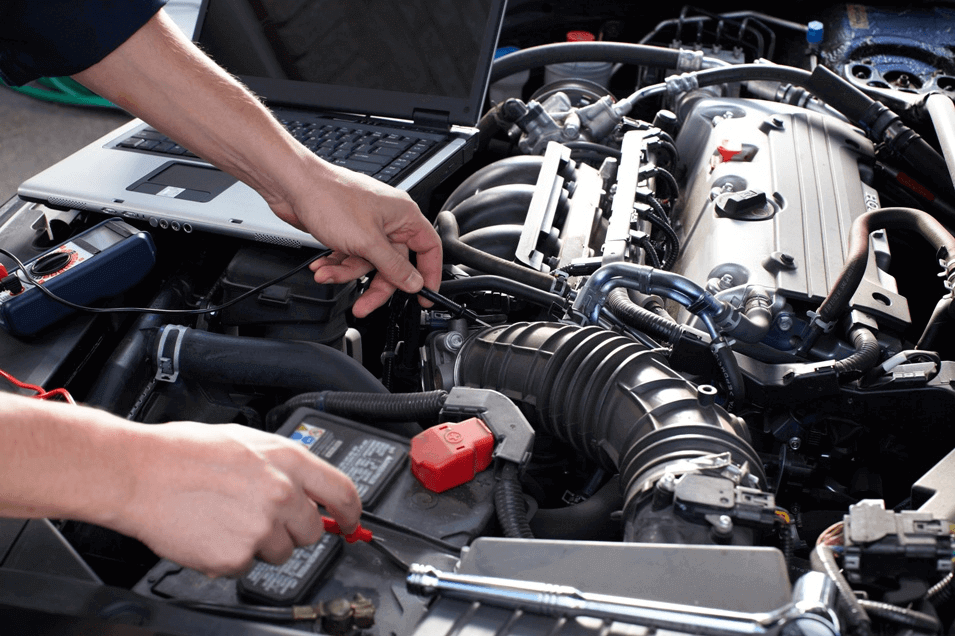What Is a Car Tune-Up and Why Is It Important?
Maintaining your car’s performance and efficiency requires regular upkeep, and one essential aspect of this maintenance is a car tune-up. Whether you’re a seasoned driver or new to vehicle ownership, understanding what a tune-up is and what it entails can save you time, money, and stress in the long run.
What Is a Car Tune-Up?
A car tune-up is a comprehensive maintenance service designed to ensure your engine runs smoothly and efficiently. It involves inspecting, cleaning, and replacing parts that are prone to wear and tear, addressing any issues that can lead to reduced performance, lower fuel efficiency, or potential engine problems.
Essentially, a tune-up optimizes your car’s performance by focusing on critical systems that impact engine operation. The specific services performed during a tune-up are tailored to your car’s age, mileage, and manufacturer recommendations. It’s important to follow the tune-up schedule recommended in your car’s manual to maintain peak performance. If you don’t have a hard copy of your manual on hand, you can easily access a digital version using the VinCheck.info Car Manual page.
Think of a tune-up as a health check-up for your vehicle—it identifies and resolves small issues before they become major, costly problems, ensuring your car continues to perform at its best.
What Does a Tune-Up for a Car Consist Of?
A car tune-up typically involves a combination of inspections, adjustments, and part replacements. While the specifics may vary depending on the vehicle, here’s a breakdown of what’s usually included:
1. Replacing Spark Plugs
Spark plugs ignite the air-fuel mixture in the engine, and over time, they can wear out or become dirty. Replacing old spark plugs ensures better combustion, leading to improved performance and fuel efficiency.
2. Inspecting and Replacing Filters
- Air Filter: Ensures clean air enters the engine for combustion. A clogged air filter reduces efficiency.
- Fuel Filter: Prevents contaminants from entering the fuel system, which can clog injectors and reduce engine performance.
- Cabin Filter: While not directly related to engine performance, it’s often checked during a tune-up for cleaner cabin air.
3. Checking Ignition System Components
The ignition system includes spark plug wires, coils, and other electrical components. These are inspected for wear and replaced if necessary to ensure proper spark delivery.
4. Adjusting or Replacing Belts and Hoses
Belts (like the timing or serpentine belt) and hoses (such as radiator hoses) are checked for cracks or wear. Replacing these parts proactively avoids breakdowns.
5. Inspecting Fluids
- Oil and Oil Filter: While often handled separately, oil changes may be included in a tune-up.
- Coolant, Transmission Fluid, and Brake Fluid: These are checked and topped off or flushed if necessary.
6. Testing Battery and Charging System
The battery, alternator, and starter are inspected to ensure the electrical system is functioning properly.
7. Cleaning or Replacing the Fuel System
Fuel injectors and throttle bodies may be cleaned, and in older cars, the carburetor may be adjusted to improve fuel efficiency and power.
8. Inspecting the Exhaust System
A blocked or damaged exhaust system can affect engine performance and emissions. Mechanics will check for leaks or blockages.
9. Scanning for Engine Codes
Many modern vehicles include an onboard diagnostic system (OBD). Mechanics will scan for error codes that could indicate underlying issues.
How Much Is a Tune-Up for a Car?
The cost of a car tune-up can vary significantly depending on the type of vehicle, the extent of the service, and the parts required.
Here’s a general breakdown:
- Basic Tune-Up: $50–$150
- Includes spark plug replacement, air filter replacement, and basic inspections.
- Intermediate Tune-Up: $200–$400
- Includes replacing spark plugs, filters, ignition components, and fuel system cleaning.
- Comprehensive Tune-Up: $500–$1,000+
- Includes all of the above, plus replacing belts, hoses, and advanced diagnostics.
Factors Affecting Cost
- Vehicle Type: Luxury or high-performance vehicles may require specialized parts and labor.
- Age of the Car: Older vehicles often need more extensive servicing.
- Location: Labor rates vary depending on your region.
- Service Provider: Dealerships tend to be more expensive than independent repair shops.
When Should You Get a Tune-Up?
Most manufacturers provide specific guidelines for tune-up intervals. For modern vehicles, a tune-up is typically recommended every 30,000 to 50,000 miles or as indicated in your owner’s manual.
Signs Your Car Needs a Tune-Up
- Decreased fuel efficiency
- Difficulty starting the engine
- Engine misfires or rough idling
- Loss of power during acceleration
- Warning lights on the dashboard
Benefits of a Car Tune-Up
- Improved Fuel Efficiency: A well-maintained engine burns fuel more efficiently, saving you money at the pump.
- Enhanced Performance: Restores lost horsepower and responsiveness.
- Reduced Emissions: Ensures your vehicle meets environmental standards.
- Preventative Maintenance: Avoid costly breakdowns and repairs.
- Prolonged Vehicle Life: Keeps your engine running smoothly for years to come.
DIY Tune-Up vs. Professional Service
DIY Tune-Up
If you have basic mechanical knowledge, you can handle tasks like replacing air filters, spark plugs, and fluids. This can save money but may require purchasing tools and parts.
Professional Service
A professional tune-up ensures a thorough inspection and uses advanced diagnostic tools to identify issues you may miss. While more expensive, it’s often worth it for peace of mind.
Conclusion: Is a Tune-Up Worth It?
Absolutely! A tune-up is a vital part of maintaining your car’s performance, efficiency, and longevity. Regular tune-ups can save you from costly repairs down the line and ensure your vehicle runs smoothly.
Whether you’re looking for a basic tune-up or a comprehensive service, understanding what a tune-up entails and how much it costs helps you make informed decisions about your car’s care.
So, don’t wait for signs of trouble—schedule a tune-up today and keep your car running at its best!
